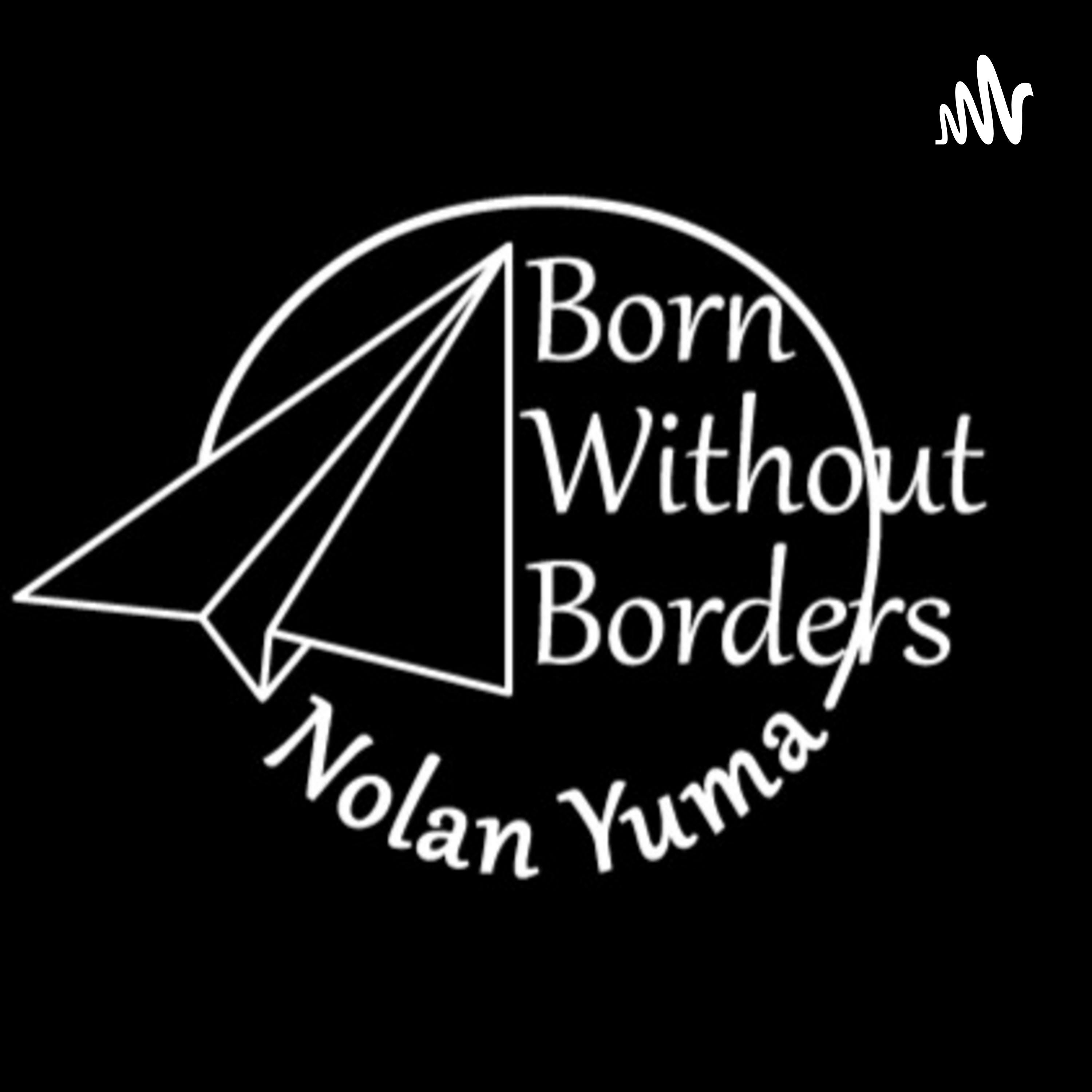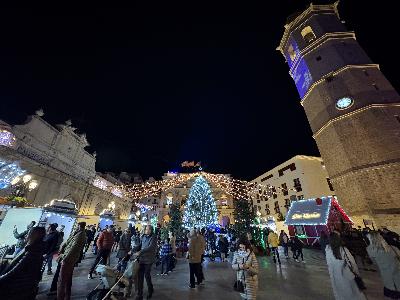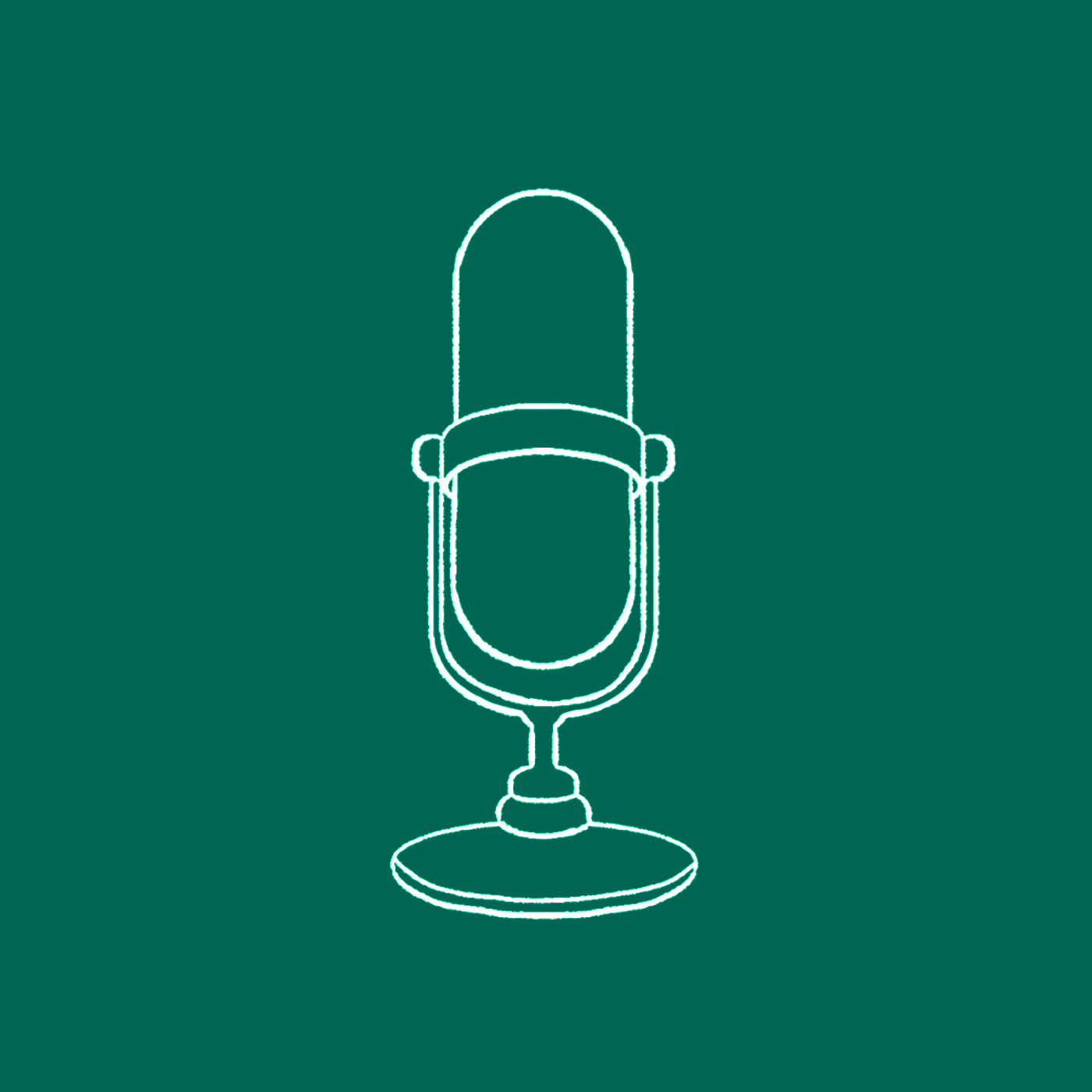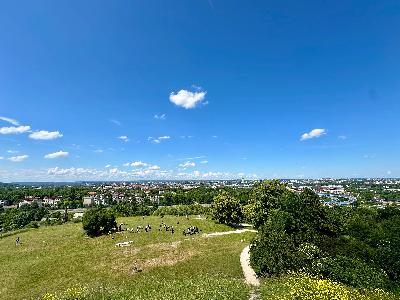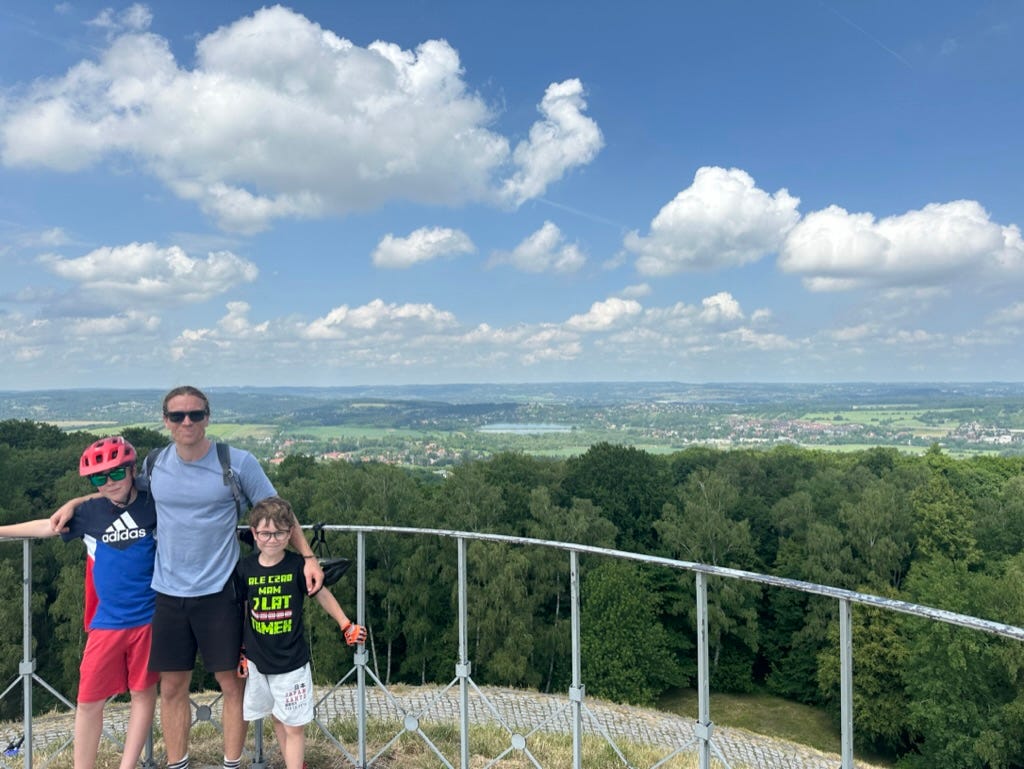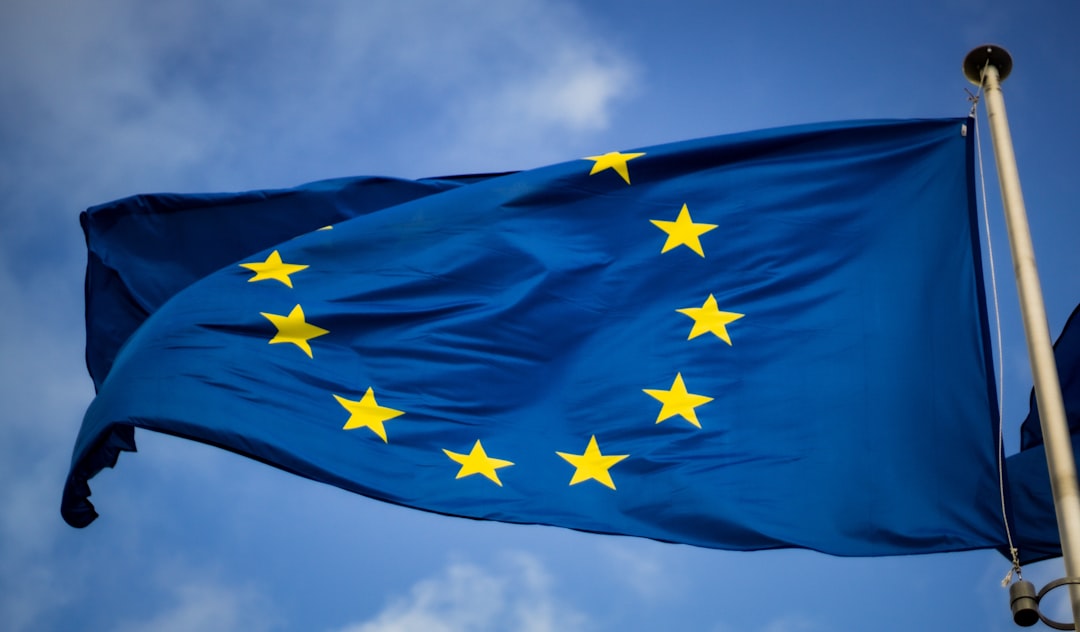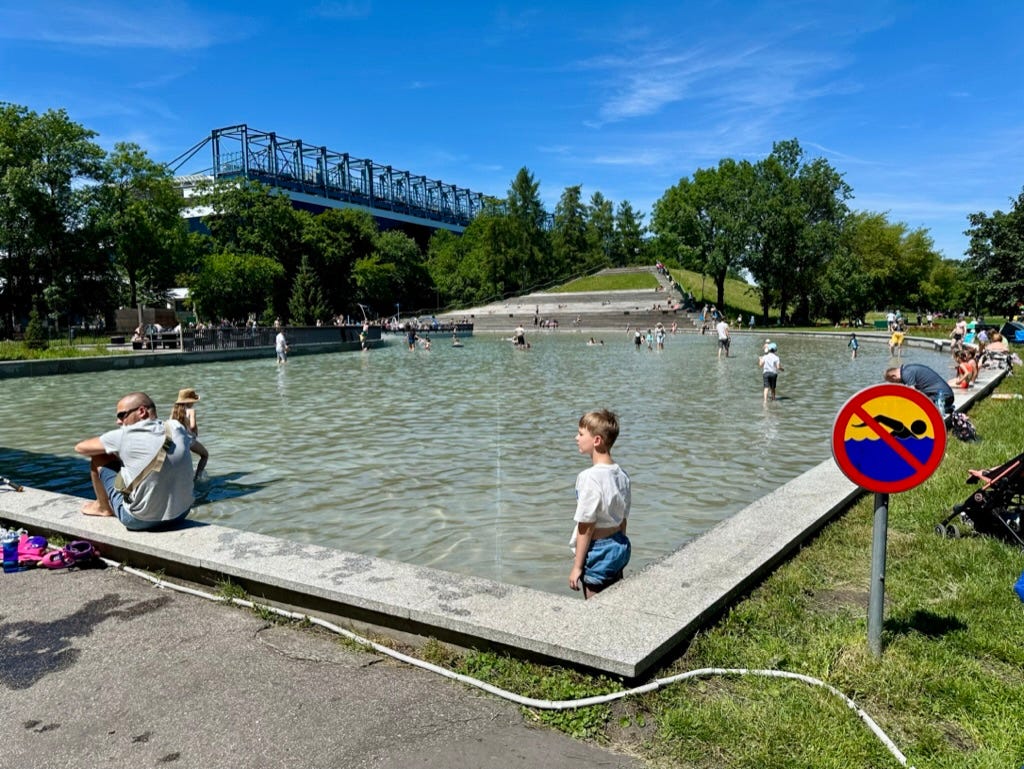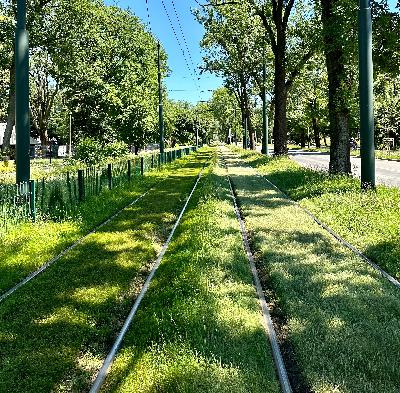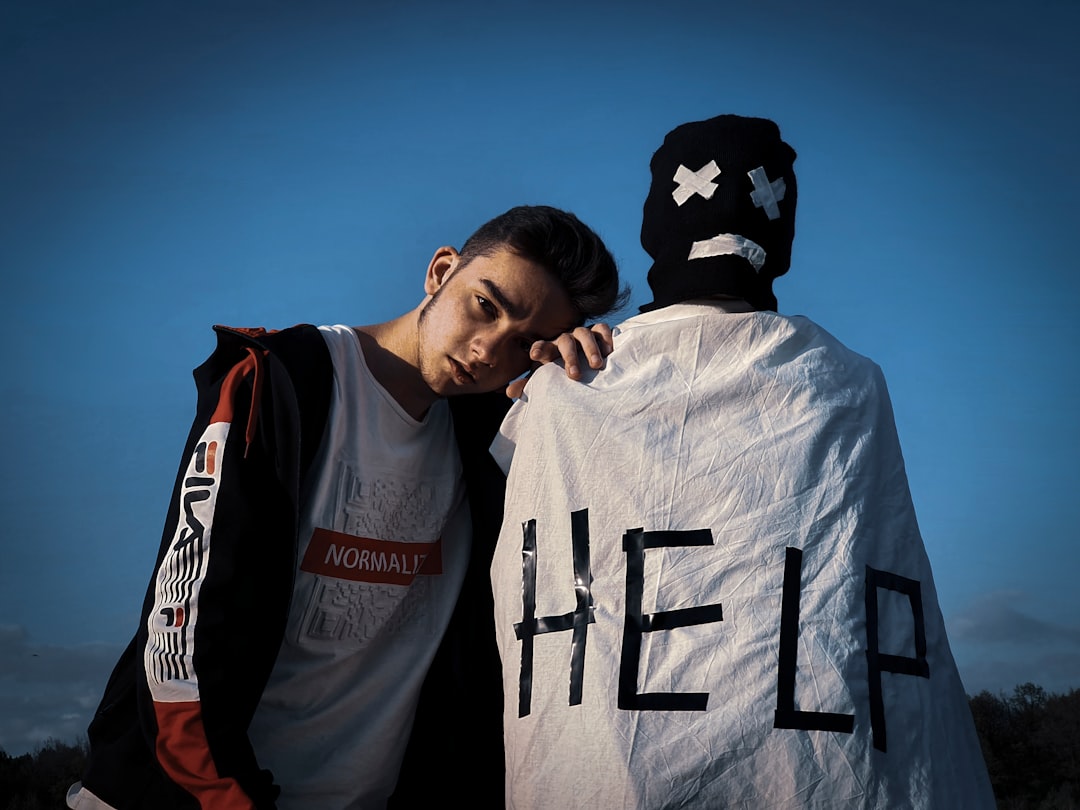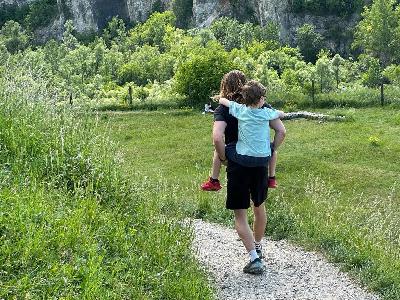Descubrir English for Global Citizens
English for Global Citizens

English for Global Citizens
Autor: Building bridges across borders through the power of English.
Suscrito: 4Reproducido: 49Suscribirte
compartir
© Nolan Yuma
Descripción
This podcast is for global citizens who want to improve their intermediate to advanced English skills.
Every week, we explore cultural psychology, travel, health, sociopolitical issues, and the occasional existential crisis.
You can follow along by reading the articles on bornwithoutborders.substack.com
Do you to book a private class or a group class? Head to englishforglobalcitizens.com
📝 Cambridge exam prep
✍️ Essay writing & storytelling
🗣️ Public speaking & presentations
🌍️ Cultural competence & business English
🧠 Evidence-based study techniques & psychology
💪 Fitness & health coaching (learn a language in a flow state)
bornwithoutborders.substack.com
Every week, we explore cultural psychology, travel, health, sociopolitical issues, and the occasional existential crisis.
You can follow along by reading the articles on bornwithoutborders.substack.com
Do you to book a private class or a group class? Head to englishforglobalcitizens.com
📝 Cambridge exam prep
✍️ Essay writing & storytelling
🗣️ Public speaking & presentations
🌍️ Cultural competence & business English
🧠 Evidence-based study techniques & psychology
💪 Fitness & health coaching (learn a language in a flow state)
bornwithoutborders.substack.com
63 Episodes
Reverse
You can find an updated and improved version of this article on bornwithoutborders.world.I only use Substack for their ad-free networking, Notes, and live videos now.Why?* Ghost lets me publish like I think: across cultures, languages, and formats.* I’m supporting a non-profit, decentralized, carbon-neutral business not funded by undeniably evil twats like Marc Andreessen.* I’ll actually have a technical support team.I'm staying away from the social media nightmare where likes define your worth, comments replace community, and billionaires capitalize. If you want to support my work, do what we did before we got scrolling brains–share it in an email, talk about it, send it in a text message, and leave the feed that feeds the lords of technofeudalism. Subscribe to bornwithoutborders.world. This is a public episode. If you'd like to discuss this with other subscribers or get access to bonus episodes, visit bornwithoutborders.substack.com/subscribe
You can find an updated and improved version of this article on bornwithoutborders.world.I only use Substack for their ad-free networking, Notes, and live videos now.Why?* Ghost lets me publish like I think: across cultures, languages, and formats.* I’m supporting a non-profit, decentralized, carbon-neutral business not funded by undeniably evil twats like Marc Andreessen.* I’ll actually have a technical support team.I'm staying away from the social media nightmare where likes define your worth, comments replace community, and billionaires capitalize. If you want to support my work, do what we did before we got scrolling brains–share it in an email, talk about it, send it in a text message, and leave the feed that feeds the lords of technofeudalism. Subscribe to bornwithoutborders.world. This is a public episode. If you'd like to discuss this with other subscribers or get access to bonus episodes, visit bornwithoutborders.substack.com/subscribe
You can find an updated and improved version of this article on bornwithoutborders.world.Click here for the updated article.I only use Substack for their ad-free networking, Notes, and live videos now.Why?* Ghost lets me publish like I think: across cultures, languages, and formats.* I’m supporting a non-profit, decentralized, carbon-neutral business not funded by undeniably evil twats like Marc Andreessen.* I’ll actually have a technical support team.I'm staying away from the social media nightmare where likes define your worth, comments replace community, and billionaires capitalize. If you want to support my work, do what we did before we got scrolling brains–share it in an email, talk about it, send it in a text message, and leave the feed that feeds the lords of technofeudalism. Subscribe to bornwithoutborders.world. This is a public episode. If you'd like to discuss this with other subscribers or get access to bonus episodes, visit bornwithoutborders.substack.com/subscribe
Before we get into the article, here's a quick note: I’m starting classes and courses where I mediate discussions with people across the ideological spectrum. We find common interests and goals to build bridges across divides. Send me a DM or respond to this email if this interests you.You’re in a relationship with what’s in front of you, not with its potential. While this might be sound advice for romantic relationships, it’s a whole other ballgame when it comes to investing in real estate.When I first stepped foot in Valencia, Spain, I fell in love with what was in front of me: its cosmopolitan energy with a Spanish flair, beaches, parks, excellent bike paths and public transport, terrace culture, cheap food, markets, an international airport, sculpted beach bodies, sounds and smells I’d never encountered, mountains in the distance, and 300 days of sun a year (with a side of potential skin cancer).It’s not hard to see why Valencia is frequently voted as the best city for Expats, Europe’s green capital, and why its record-breaking housing prices are causing a crisis for many local renters.If I had invested in Valencia’s real estate potential five years ago, the apartment's value could have appreciated by approximately 50% or more, considering the recent 17% annual increase. Yet, what was in front of me was already out of my budget.Instead, I turned to Comunidad Valencia’s fourth-biggest city, Castellón de la Plana. Known as one of the ugliest cities in Spain, Castellón de la Plana has been steadily revamping its reputation since I arrived.(No, not because of me.) In recent years, Castellón de la Plana has undergone significant urban development and beautification efforts, evidenced by its transformation and the stunning Christmas displays of 2024.Key initiatives include the completion of the Ronda Oeste, a major infrastructure project supported by the Generalitat Valenciana and the Castellón City Council, with a €46 million investment aimed at improving urban connectivity and traffic flow.These local efforts are complemented by Castellón’s participation in European initiatives, such as the Intelligent Cities Challenge, which focuses on sustainable urban planning and energy efficiency, and the UNaLab project, funded by the EU’s Horizon 2020 program, which enhances urban sustainability through nature-based solutions.Nature—it’s one of the main reasons I’ve decided to stay in Castellon de la Plana instead of trying to make ends meet in Valencia.The Desert de les Palmes Natural Park is a mountainous landscape that flanks the coastline, defined by its rugged summits and popular walking trails.For cycling enthusiasts, the Via Verde Green Route provides a scenic path through diverse landscapes, making it a favoured choice for both cyclists and hikers. Well, it’s flat, so maybe the better word is “walkers.”Additionally, the Sierra de Irta Natural Park offers a combination of mountainous terrain and pristine beaches, ideal for hiking and enjoying unspoiled (outside of the summer months) coastal scenery.The Penyagolosa Natural Park is home to Mount Penyagolosa, the highest peak in the province, making it a haven for hikers and climbers seeking trails and stunning views.Off the coast, the Columbretes Islands Nature Reserve is an archipelago renowned for its rich marine biodiversity, popular for diving and boat excursions.Lastly, the Serra d'Espadà Natural Park is known for its lush cork oak forests and diverse wildlife, offering numerous trails for hiking and exploring nature.Yet, these aren’t places you can visit daily unless you’re retired. If you have a busy and sporadic schedule like mine, you might want to live in a neighbourhood with parks, beaches, bars, restaurants, supermarkets, and everything else you need within a 10-minute walk.That’s why I chose El Grao, Castellon de la Plana’s coastal district and port area. Similar to Valencia’s Cabanyal, it was considered one of the most sketchy neighbourhoods, “full of Gitanos (gypsies) and Moroccans.” And whereas this sentence might sound racist AF, it reflects how many people talk here. That’s no excuse, but people in Castellón have historically viewed El Grao negatively through those labels. As a result, my property value hasn’t skyrocketed like those in Cabanyal, Valencia.In the town of El Grao, I’m one of the only guiris—white-ass foreigners who wear flip-flops in winter. The other foreigners live a fifteen-minute walk away in villas on the beach. Yet, every year, I hear more English, German, and French as I walk through El Grao. Most of these people are retired, but thanks to UJI, Castellon’s university, you can also find younger crowds from across Europe.While locals remain skeptical of the area, foreigners are increasingly drawn to it. This was also the case with Cabanyal, Valencia. Now, those same locals who looked down on Cabanyal are kicking themselves for not investing.You might think it’s silly to compare a city with 800,000 people (1.5 million if you include the metropolitan area) to Castellon de la Plana, a city with 175,000 people (300 000 people if you include nearby municipalities like Vila-real, Benicàssim, and Almassora). However, from my North American distance perspective, these separate towns feel like distinct neighbourhoods.Benicàssim, for instance, hosts the Festival Internacional de Benicàssim (FIB), one of Spain’s most famous music festivals, and Rototom Sun Splash, the best Reggae festival I’ve ever attended. These events attract people worldwide and give the surrounding areas an international feel during those weeks.While we’re at it, here’s a list of the other largest festivals (only a tiny percentage) Castellon has to offer.1. La Magdalena (Castellón de la Plana)* When: March* Type: Traditional Religious and Cultural Festival where people get absolutely wasted.* Description: The city celebrates its patron saint with parades, fireworks, traditional costumes, and the "mascletà."2. Fiesta de San Juan (Benicàssim)* When: June 23-24* Type: Traditional Festival* Description: Celebrates the summer solstice with bonfires, fireworks, and beach parties along the coast.3. Encuentro de Veleros de El Grao (El Grao, Castellón)* When: September (varies)* Type: Maritime Festival* Description: A celebration of tall ships and sailing vessels with races, exhibitions, and nautical activities at Castellón's port.4. Día de las Paellas* When: January* Type: Culinary and Cultural Festival* Description: A highlight of Benicàssim's patronal festivities, this event celebrates community and gastronomy with thousands gathering to cook and enjoy traditional paella.5. Feria de la Cerámica (Vila-real)* When: May* Type: Craft and Artisanal Festival* Description: Celebrates Vila-real's ceramic tradition with exhibitions, artisan markets, and pottery workshops.Many of these festivals are much more local than Fallas in Valencia, but that’s also why you don’t walk around like a squished sardine with English screams piercing your ears.Look, festivals and nature—that’s what I enjoy. However, I’m fully aware that others might choose big cities for the shopping experience, but that’s not lacking in Castellón de la Plana either.Castellón de la Plana offers a diverse shopping experience featuring a mix of local boutiques and well-known brand stores. On the pijo (posh) side of things, one of the primary shopping destinations is El Corte Inglés, a prominent Spanish department store offering a wide range of products, including fashion, electronics, and home goods. There’s even a Rituals store in Castellón, which, unfortunately for my wallet, I’m addicted to for the smell of my body and home.Yet, the only shopping I do weekly is at the local markets. Castellon offers one of Spain’s largest markets every Monday, with 480 stands of local produce, clothes, perfume, toys, fabrics, and much more. Many of these vendors come to El Grao’s market every Friday, which is where I buy all my vegetables, fruit, and clothes which would cost double in stores.Now, if all of that’s still not enough for you, Valencia is just over an hour away by train. For those of us with a North American distance perspective, Castellon de la Plana feels like it’s part of Valencia’s metropolitan area. The difference: better beaches, prices, a more authentic local experience, and a whole lot of potential.Also, if you become a founding member, I’d be happy to create a personalized tour, show you the area, help you with accommodation, and whatever else you need.Born Without Borders is a reader-supported guide to building bridges across divides, cultural psychology, travel writing and how to salir de las fronteras que impone tu mente. Both free and paid subscriptions are available. If you want to support my work and help me upgrade to more than one cabin bag, the best way is to take out a paid subscription or Buy Me a Coffee.If you are interested in English lessons for global citizens (or know anyone who is), please send me a message or visit English for Global Citizens.Here are some of my travel videos related to the festivals and culture in Castellon: This is a public episode. If you'd like to discuss this with other subscribers or get access to bonus episodes, visit bornwithoutborders.substack.com/subscribe
You can now read the article on Ghost.Click here. This is a public episode. If you'd like to discuss this with other subscribers or get access to bonus episodes, visit bornwithoutborders.substack.com/subscribe
You can now read this article on Ghost.Click here. This is a public episode. If you'd like to discuss this with other subscribers or get access to bonus episodes, visit bornwithoutborders.substack.com/subscribe
Then God said, ‘Let us make humankind in our image, according to our likeness; and let them have dominion over the fish of the sea, and over the birds of the air, and over the cattle, and over all the wild animals of the earth, and over every creeping thing that creeps upon the earth."— Genesis 1:26F**k that s**t. We see ourselves as complex, symbolic beings, while animals, we assume, are just instinct-driven beasts over which we have dominion. And by “we,” I mean those influenced by Judeo-Christian rhetoric, not those from the wisdom societies who understood everything is connected before scientists had to prove it. Luckily, the more we learn (or rather unlearn), the more it seems other species also have their own “cultural” quirks. So, are we actually that special, or are we just the only ones pretentious enough to debate it? What Even Is Culture?First off, what qualifies as culture? If we define culture as using symbols to create shared meaning—a sort of private language club for each species—then yes, humans have it in the bag. No other animals seem to use abstract symbols or grammar. But this definition is a bit like setting the rules of a game so only humans can win.A broader definition could just mean “learning behaviours from others in your group.” And if that’s the bar, then humans are not alone in the cultural game. Many animals show cultural learning—just maybe without the existential monologues.Meet Some Animal Culture Stars* Chimpanzees: Our close cousins use sticks to fish for termites and stones to crack nuts, with different communities showing distinct tool-use habits. It’s like local cuisine for chimps—some are into the bark-peeling technique, and others are more of the twig-fishing variety. They’re even known to learn from each other, which sounds suspiciously like cultural transmission—the way a “person” learns about a new culture by engaging and immersing themselves in culture.)* Dolphins and Orcas: Dolphins are another species that seems to enjoy DIY culture. In certain areas, dolphins use marine sponges as “gloves” while hunting to avoid scratches. Orcas, on the other hand, develop unique vocal “dialects” and specialized hunting strategies that are passed down through generations. They don’t just live in the deep—they live in pods with distinct traditions.* Macaques: In one famous case, a young macaque named Imo figured out that washing sand off sweet potatoes in the water made them taste better. Soon, her friends and family were imitating her—and just like that, sweet-potato-washing became the hottest cultural trend on the island. This didn’t happen overnight, but hey, they didn’t have the marketing budgets human trend-pushers have. * Birds and Fish: Some songbirds learn regional tunes, while certain fish follow food-finding strategies from others. It’s not jazz night at the village bar, but it does show that animals are doing a little social learning and passing it down.Don’t worry. I still think you’re special. Animals have learned behaviours passed down socially. But here’s where humans shine: we do it faster, more widely, and with a unique twist called cumulative culture. In human societies, it’s not just about copying someone else; it’s about building on each new idea to reach a new level—essentially making us the kings and queens of the "cultural snowball effect."Take language, for instance. Vervet monkeys have a few calls to warn each other about predators, but there’s no “syntax” in their system. Meanwhile, humans have languages with rich vocabularies, grammar, and syntax—all evolving and expanding over generations. Sure, animals have their dialects, but so far, nothing comes close to the complexity of human language. Why Are Humans Obsessed with Imitating the “Cool Kids”?Another human specialty is our “prestige bias.” We’re constantly on the lookout and, thanks to advertising and Hollywood, bombarded with people who have what we want—status, money, and sex. We tend to copy those who have these things more than the 40-year-old virgin living in their mom’s basement. This strategy is super efficient: rather than reinventing the wheel, we watch the “best” people do it and borrow their methods. Case in point: a study found that kids are more likely to imitate a “prestigious” adult model than a random one. Unfortunately, many of these “best” people—the billionaire celebrities—are self-interested psychopaths. However, in the animal kingdom, it’s mostly an “anyone will do” approach. Macaques, for example, don’t seem to care if the potato-washer they’re copying is a star in their community or just the neighbour.So, What’s the Verdict? Are We Just Fancier, Wordy Chimps?It’s clear that many animals have behaviours that spread through social learning, which is essentially culture in a broad sense. But humans crank this up a notch with complex language, fast and cumulative cultural learning, and a keen eye for high-status role models. This high-precision cultural learning has led us to literature, art, medicine, skyscrapers, destructive consumption, plastic surgery to look like an AI filter, and, of course, philosophical debates on culture.So, yes, humans are unique. But maybe we’re just unique in thinking that our culture is the only “real” one—while the chimp tribes and dolphin pods are just busy living their own version of it, minus the pretentious discussion and environmental destruction. In the end, culture might not be just about who does it best but about who cares enough to write it all down. Born Without Borders is a reader-supported guide to the craft of nonconformity, cultural psychology, travel writing and how to salir de las fronteras que impone tu mente. Both free and paid subscriptions are available. If you want to support my work and help me upgrade to more than one cabin bag, the best way is to take out a paid subscription or Buy Me a Coffee.If you are interested in English lessons for global citizens (or know anyone who is), please send me a message or visit English for Global Citizens. This is a public episode. If you'd like to discuss this with other subscribers or get access to bonus episodes, visit bornwithoutborders.substack.com/subscribe
Video VersionYou can read the article on Ghost. Click here. This is a public episode. If you'd like to discuss this with other subscribers or get access to bonus episodes, visit bornwithoutborders.substack.com/subscribe
You can now read the article on Ghost.Click here. This is a public episode. If you'd like to discuss this with other subscribers or get access to bonus episodes, visit bornwithoutborders.substack.com/subscribe
I moved the article to Ghost. Click here to read it. This is a public episode. If you'd like to discuss this with other subscribers or get access to bonus episodes, visit bornwithoutborders.substack.com/subscribe
I moved the article to Ghost. Click here to read it. This is a public episode. If you'd like to discuss this with other subscribers or get access to bonus episodes, visit bornwithoutborders.substack.com/subscribe
Europe is a “Russian” doll. Its endless layers become deeper every time you meet someone new or revisit a place. So, for the past three months, I’ve asked locals the same questions to understand what makes their cities or towns unique. But what does “their” mean?To populists in Europe, this often means white people who embody the general customs of the country as far back as they’d like to remember. In times of fear and anxiety, populists thrive because people cling to a false sense of security, forgetting that change is the only constant in life. Human migration has been the most basic feature of humankind for millions of years. Arguments against it in favour of “strong borders” are thinly veiled racism and ahistorical thinking.— Nishant Jain You can now read the rest of this article on Ghost by clicking here. I'm staying away from the social media nightmare where likes define your worth, comments replace community, and billionaires capitalize. If you want to support my work, do what we did before we got scrolling brains–share it in an email, talk about it, send it in a text message, and leave the feed that feeds the lords of technofeudalism. Subscribe to bornwithoutborders.world. This is a public episode. If you'd like to discuss this with other subscribers or get access to bonus episodes, visit bornwithoutborders.substack.com/subscribe
Although I had planned to stay in Poland for a few weeks, I stayed for over two months. The contrast to Valencia, Spain, was just what I needed— “Peace.”Krakow’s parks create a green oasis in a city of over 700,000 people (1,000,000 if you include the student population). The people speak at a volume Valencians would consider a whisper and with an amount philosophers would be proud of. Nature gave us one tongue and two ears so we could hear twice as much as we speak.— EpictetusHowever, if you read “A Local’s Guide to Poland,” you know my Polish host thinks most Pols are anything but wise or even tolerable. His brutal directness and critical thinking about relationships, politics, and Poland gave me an insight most tourists wouldn’t experience. Thanks to my host’s unstinting generosity, I visited restaurants and museums without breaking the bank. More importantly, I had the time to walk, bike, and take in Krakow and Tricity at a slow and therapeutic pace. Born Without Borders is a reader-supported guide to the craft of nonconformity, cultural psychology, travel writing and how to salir de las fronteras que impone tu mente. Both free and paid subscriptions are available. If you want to support my work and help me upgrade to more than one cabin bag, the best way is to take out a paid subscription.Food & Poetry Before I arrived in Poland, I imagined hunks of dough and chunks of meat slopped down on a plate with some sour cream and overused dill wolfed down by barbarians whose flat backs of skulls were used as dinner plates. I wasn’t wrong, but there’s more to it than that. The produce in Poland is some of the best I’ve had—probably because 40% of their population is rural, and almost all their poetry is about the land… or death. "Życie na wsi" (Life in the Countryside) by Franciszek Karpiński (1741-1825)Excerpt:Tu wśród pól zielonych płynie życie moje,Wśród łąk i lasów spędzam chwile swoje.Rolę uprawiam, plon zbieram bogaty,Życie na wsi to spokój i dostatek.Here among the green fields flows my life,Among meadows and forests, I spend my time.I till the soil, gather rich harvest,Life in the countryside is peace and abundance.The pastoral veins, otherwise known as Vistula (Wisła), Oder (Odra), Warta, Bug, Narew, San, Noteć, and Pilica rivers, run through Poland’s fields, forests, towns, and cities. Even in urban areas, they’re never far away, and you feel their presence as you eat the cuisine, which is delicious to those of us who love the tangy sourness of fermented foods. Żurek is Poland's most famous soup and my favourite. It’s made using fermented rye flour (what’s often used for sourdough), giving it a distinctive sour flavour. The ingredients usually include kiełbasa (Polish sausage), diced potatoes, hard-boiled eggs, carrots, leeks, onions, and spices like marjoram, bay leaves, garlic, and horseradish. I can’t write an article about Poland without Pierogi. This is where you can taste the poetry as everything they grow on their fertile lands, whether it be strawberries, blueberries, cherries, or apples, are used in Pierogi. There’s also Pierogi z Kapustą i Grzybami (Pierogi with Sauerkraut and Mushrooms), Pierogi z Mięsem (Meat Pierogi), Pierogi Ruskie (Ruthenian Pierogi), and the broke ass Pierogi—Pierogi z Kaszą Gryczaną i Twarogiem (Buckwheat and Farmer’s Cheese Pierogi). I also wrote about Kotlet Shabowy (similar to an Austrian Wiener Schnitzel) and Rosół soup (chicken soup with carrots, parsnips, celery root, leeks, and onions) in “A Kid's Guide to Krakow, Poland” if you’re interested in learning about what children value in Krakow. Land & Poetry These are the types of places you find in Krakow scattered throughout the city. If you bike and walk to different neighbourhoods, you rarely go on roads. Instead, you weave your way through parks. The people do not scream or gather in large groups. They keep to themselves, but is it out of respect or depression? There’s a darkness to the stillness here that’s best captured by Adam Mickiewicz and Tadeusz Różewicz."Dziady" (Forefathers' Eve) by Adam Mickiewicz (1798-1855)Excerpt from Part II of "Dziady":Ciemno wszędzie, głucho wszędzie,Co to będzie, co to będzie?Śród drzewa cienistych kęp,Śród mchów wilgotnych gąszczu,Drży leśny liść, drży wieczny pęd.Dark everywhere, silent everywhere,What will happen, what will happen?Amidst shady clumps of trees,Amidst damp thickets of moss,The forest leaf trembles, the eternal sprout trembles."Ocalenie" (Rescue) by Tadeusz Różewicz 1921 to 2014Mam dwadzieścia cztery lata ocalałem prowadzony na rzeź. Oto są słowa puste: człowiek i zwierzę miłość i nienawiść wróg i przyjaciel ciemność i światło. Człowieka zabijają jak zwierzęwidziałem: furgony porąbanych ludzi którzy nie zostaną ocaleni. Pojęcia są tylko wyrazami: cnota i występekprawda i kłamstwopiękno i brzydotamęstwo i tchórzostwo.I am twenty-four led to slaughter I survived. The following are empty synonyms: man and beast love and hate friend and foe darkness and light. Man is killed just like an animalI’ve seen: truckloads of chopped-up people who will not be saved. Concepts are only words: virtue and crime truth and lies beauty and ugliness courage and cowardice.There is no escaping war in Poland. People here don’t stop talking about war strategies and weapons while suppressing their scars behind vodka and the so-called tough-dude patriarchy. I thought there might be a break in the mentality in the Tricity (Gdansk, Gdynia, and Sopot) since the forests and people inhale the sea air. Then again, that air belongs to the Baltic—a dying sea with low salinity due to limited exchange with the North Sea and substantial freshwater inflows. Eutrophication from nutrient runoff, pollution from industrial activities, overfishing, and climate change have led to declining water quality, dead zones, and reduced biodiversity. Worst of all, it looks like slimy diarrhea due to the algae and nutrient pollution. However, staying out of the water has its benefits. Since I was alone on the Hel Peninsula—a narrow strip of land stretching about 35 kilometres into the Baltic Sea—I experienced it without my host’s history/war lessons. I took advantage of the stretches only 100 meters wide, running from what felt like one sunset to another. I ate fresh Halibut, watched kiteboarders, illegally slept on the beach like the locals, and avoided the bunkers and other war attractions at all costs. Yet, even here, where surfers, partiers, fishermen, and holiday-goers overtook the land, there is an aura of sadness. Is it generational trauma from war? The dark winters? The access to too much vodka? Whatever the combination is, people love to complain here. They’ll admit it’s a national sport. Yet, it’s not the French complaining type where people get together to protest, create social change, or s**t in their beloved Seine. There’s a deep, internal pain and frustration here that no amount of wealth or increased GDP seems to change. So, how exactly did Poland give me what I needed? If you’ve been following this season of Born Without Borders, you know that I planned to go to the North of Sweden.That’s not happening anymore. I mentioned my goal was to explore slow travel's therapeutic effects and return home, wherever that is. Something in me told me to go to the North of Sweden. That something was trying to prove to others what I didn’t need to prove to myself. I didn’t need to show off how far I could travel with trains, buses, and bikes—I needed to feel homesick. Which didn’t turn out to be my birthplace (Chile), the land of my heritage (Belgium), or the country I grew up in (Canada). It was Spain. I started to crave Comunidad Valencia's ambiance. I missed stepping outside in the morning and hearing groups of people talking over each other and disregarding what Northerners call personal space. I missed the sassy abuelas, the morning-drinking abuelos, and most of all, I missed seeing people from all walks of life enjoying life to the fullest. Yet, I’ve spent enough time in Poland for the country to shape my behaviour and thoughts. For one, I’ll complain more about Spain’s tax system for autonomous (self-employed people). By the way, next week, you can learn about Poland’s tax system, which keeps my friend (who’s originally from Belarus but embodies a true global citizen) in Poland despite all the racism she faces here. Most of all, I won’t shy away from humanity’s darkness or deny that our world is shaped by violence. Fortunately, you can create beauty within the doors of chaos like the space within atoms. These are the waves on which the human spirit rides. Born Without Borders is ad-free, thanks to paid subscribers. Your support allows me to devote more time to writing my best work. Remember, I also give quick updates and recommendations on Notes. If you’re tired of traditional social media's mindless scrolling and ad-controlled algorithm, Notes is a much more positive place to hang out. I also post my collection of Notes in the newsletter. I’ll release my collection soon, which gives you even more insight into Poland and all the places I visited. Where to next?Hamburg, Germany. Then maybe Belgium and eventually back to Spain. However, I can’t return to my apartment. That’s an Airbnb story for a later time. If you know other people who would enjoy Born Without Borders and want to salir de las fronteras que impone su mente, please spread the word! This is a public episode. If you'd like to discuss this with other subscribers or get access to bonus episodes, visit bornwithoutborders.substack.com/subscribe
I moved the article to Ghost. You can read it here. This is a public episode. If you'd like to discuss this with other subscribers or get access to bonus episodes, visit bornwithoutborders.substack.com/subscribe
All my work is now published on Ghost, a decentralized, non-profit, and carbon-neutral platform—free from VC funding and the grip of technofeudal lords.I don’t use algorithms to hijack your attention.You can read the article by clicking here. This is a public episode. If you'd like to discuss this with other subscribers or get access to bonus episodes, visit bornwithoutborders.substack.com/subscribe
You can find an updated and improved version of this article on bornwithoutborders.world.Read the article here:I only use Substack for their ad-free networking, Notes, and live videos now.Why?* Ghost lets me publish like I think: across cultures, languages, and formats.* I’m supporting a non-profit, decentralized, carbon-neutral business not funded by undeniably evil twats like Marc Andreessen.* I’ll actually have a technical support team.I'm staying away from the social media nightmare where likes define your worth, comments replace community, and billionaires capitalize. If you want to support my work, do what we did before we got scrolling brains–share it in an email, talk about it, send it in a text message, and leave the feed that feeds the lords of technofeudalism. Subscribe to bornwithoutborders.world. This is a public episode. If you'd like to discuss this with other subscribers or get access to bonus episodes, visit bornwithoutborders.substack.com/subscribe
All my work is now published on Ghost, a decentralized, non-profit, and carbon-neutral platform—free from VC funding and the grip of technofeudal lords.I don’t use algorithms to hijack your attention.You can read the article by clicking here. This is a public episode. If you'd like to discuss this with other subscribers or get access to bonus episodes, visit bornwithoutborders.substack.com/subscribe
In the city destroyed by Mongols, plundered by Swedes, and oppressed by Austrians and later Soviets, I started to heal. In the land where over 65,000 Jews were brutally murdered and endless remnants of war remind you of humanity’s darkness, I felt my light.If it weren't for my students inviting me, Krakow, Poland, wouldn’t have been on my “top 10” list. Now, I’d argue it’s one of the most liveable cities in Europe. With nearly one million people (the stats say 766,683, but that doesn’t take the 200 000 students into account), 24 institutions of higher education, world-class bars with beers under €2, restaurants and food trucks with cuisine from around the world, 7 UNESCO World Heritage sites, a well-connected public transit system, parks that make the entire city feel like a green oasis, and a flat 19% tax rate for individual entrepreneurs, Krakow rivals the European cities I can’t afford.Usually, cities like Vienna, Copenhagen, and Zurich make it to the top of Europe’s most liveable cities. And sure, they’re liveable if you’re rich, but if you’re a digital nomad with remote healthcare like Safety Wing (Poland’s healthcare is mediocre), your quality of life can be much higher in Krakow. However, I’m surprisingly more ambassadors-like than my student’s father, a Krakow local who’s lived here his entire life. Before you take my opinion too seriously, you need to know I experienced Krakow in May and June, the best possible months. You should also be aware that I was at an all-time low before Krakow. I had just started my quest from Castellon, Spain, to the North of Sweden to explore the therapeutic effects of slow travel. Although I had an incredible time and learning experience in Turin, Italy, my stop in Zadar, Croatia, knocked me back down. Luckily, I ended up at my student’s father’s home in Krakow, Poland. For those of you who follow me on Substack Notes, you know why ending up with a family who appreciates and feeds off my energy made me see my light. For those who don’t use Substack notes, I’ll keep you updated with my newsletter, which is the heart of Born Without Borders. However, since part of my quest is to show people how to travel therapeutically, I highly recommend getting off of attention-stealing and depression-inducing platforms controlled by ads like Instagram, Facebook, Twitter, and TikTok. We all have the need to share, communicate, and preserve the moments of our lives. Substack Notes doesn’t have ads, and the algorithm allows you to choose what you want to see. Most importantly, you put the app down, feeling like you haven’t wasted your time. For creators, it means you have full control. You own your email list and content, allowing you to jump ship whenever you want, although I doubt you’ll find a reason why. Next week, I’ll post detailed insight and a guide to Krakow from a local’s perspective. As a history buff, entrepreneur working internationally, and someone who has lived in Krakow his entire life, his recommendations, warnings, and opinions about Krakow will give you a more accurate idea of Krakow. The article will be for paid subscribers as it’s the only way for this project to be sustainable. What do you get for subscribing?Thanks to travelling the world, interviewing people across cultures, doing deep dives and transparently providing links to thorough cultural psychology research, Born Without Borders is like your own cultural consultancy (but better because you can bring it with you in your back pocket for a fraction of the cost).I don’t sell what you can find in a theory book. This is about talking to and about people from all walks of life, not just those in the corporate world.Through my stories, articles, interviews, and community, I can help raise your understanding of the world, culture-bound mental illnesses and therapy, and how to step outside your comfort zone through the power of quests and stories.Together, we can decrease polarization, help people look from the outside in and the inside out, and create a community for those whose sense of home isn’t tied down to geography.So, if you want to raise your cultural competency and engage in first-hand stories, consider upgrading today… or I might just have to retire to regular cultural consulting at 150$/hour, which neither you nor I would want.For $6/month or $50/year, you can help ensure that Born Without Borders stays afloat. Your support gives me the time to research and write my best work on a platform not controlled by ads. You can also support me through Buy Me a Coffee.At the end of every journey, I write a book. My first one, Living with the In-Laws, is available on Amazon. Paid subscribers get a free Kindle or PDF edition, and founding members get a signed paperback.Do you want to travel without paying for acommodation? Try Home Exchange.HomeExchange is an online platform that connects people from all over the world to exchange their homes without money (and taxes) changing hands. Plus, there’s a point system, so you don’t need to exchange homes at the same time.If you want to use Home Exchange and support this journey simultaneously, you can use this link.Learn more about Born Without Borders This is a public episode. If you'd like to discuss this with other subscribers or get access to bonus episodes, visit bornwithoutborders.substack.com/subscribe
You can now read an updated version on Ghost by clicking here. This is a public episode. If you'd like to discuss this with other subscribers or get access to bonus episodes, visit bornwithoutborders.substack.com/subscribe
The mentally stable and alcoholics tell me I don’t need therapy. The traumatized and therapy-experienced tell me I do. I realize understanding yourself is like understanding a country—sometimes, you need to look from the outside in. However, I can’t shake the school of thought that we have friends and strangers for that. As Tomas from Caffeine Enlightenment mentions:Putting all of it on the shoulders of the therapist, you allow another person to tighten their grip on the wheel of your life. You assume that someone knows you way better than you. You create a dependency link.Of course, this depends on how sales-driven and ethical your therapist is, but for the moment, let’s pretend (agree?) that you know yourself better than anyone else. Maybe you’ve managed to look from the outside in through meditation, psychedelics, or what I’m concentrating on for today’s article—social bonds. Receiving sufficient social support has been shown to play a key role in coping with psychological distress and is associated with various physical health benefits both within and across cultures. The difference is that the type of social support can vary vastly depending on the culture. For example, European-Americans are far more likely than East Asians or Asian-Americans to actively seek social support from others, such as telling a friend about their problems. At first, this may sound surprising, given that Asian cultures are much more interdependent. This means people view themselves as inherently connected with others and prioritize collective goals over personal ones. However, this cultural difference in social support seeking appears largely because East Asians are more concerned about how seeking social support will disrupt their relationships with others. East Asians tend to seek social support from those close to them, but unlike Westerners, they are more inclined to use implicit social support—they find emotional solace by reflecting on their close relationships.Research indicates that European Americans experience reduced physical stress responses when they can seek social support directly, like asking for advice or assistance. In contrast, Asian Americans exhibit a lower stress response when they contemplate their close relationships. Similarly, European Americans show more noticeable health benefits when they perceive that they have much social support. In contrast, those same health benefits do not increase alongside perceived support for Asian Americans. Furthermore, Asian Americans experience greater stress relief from unsolicited social support compared to solicited support due to their worries about the social costs of seeking help. In contrast, European Americans find social support equally effective in reducing stress, whether they have requested it or not.In addition, the kinds of explicit support people offer their friends vary across cultures. North Americans typically offer more emotion-focused support (such as encouraging or comforting words). If you hear the words “You go, girl/You’re amazing, man/Go get ‘em, tiger,” I’ll bet my savings it’s coming from an American or Canadian. In contrast, East Asians, Russians, and, from my experience, Poles and Ukrainians tend to offer more problem-focused advice, which I jive with more. Why? Who the hell knows? As a Chilean-born Belgian raised in Canada, I’m a Westerner with a sprinkle of Latino. Yet, I’d rather have someone say, “Nolan, get your head out of your ass and go into the mountains for a day without a cell phone,” than “You’re awesome, don’t let anyone tell you differently, bud.” Yet, I don’t have a culture-bound explanation as to why the mentally stable friends and alcoholic friends tell me I don’t need therapy and why the traumatized and therapy-experienced tell me I do. It comes down to the fact that we don’t see the world for what it is but as who we are. My mentally stable friends reflect my strength and autonomy. They’re likely to take me into Mother Nature for a day of intensive sport before recommending a therapist. The alcoholics in my life are liable to lie to themselves by saying, “Alcohol makes a man honest—let’s drink and talk it out,” not realizing that a lack of inhibition is not synonymous with the truth. They don’t realize that initial thoughts are often wrong or, more often, incomplete. Those with trauma and experience with therapy can often complete my thoughts with phrases that capture feelings I didn’t know how to express. Some of them speak my academic language with the rational compassion I seek. Others speak the language of how the moon and planets dictate our emotions—a language that my heart tries to appreciate as play and art, but my mind understands as harmful pseudoscience (probably because of my academic cultural conditioning). Whether it’s as well-studied as cognitive behavioural therapy or as spiritual as Astrology, your cultural background affects the type of therapy that works for you. Next week, I’ll release my research and experiences with culture-bound therapy. I’ll show you what kind of therapy works, depending on the culture.For now, I’m happy to be in Poland with my students, who have treated me like a family member. If you’re new to Born Without Borders, you might not know this season is about exploring slow travel's therapeutic effects as I quest to the North of Sweden. Thanks to travelling the world, interviewing people across cultures, doing deep dives and transparently providing links to thorough cultural psychology research, Born Without Borders is like your own cultural consultancy (but better because you can bring it with you in your back pocket for a fraction of the cost).I don’t sell what you can find in a theory book. This is about talking to and about people from all walks of life, not just those in the corporate world.Through my stories, articles, interviews, and community, I can help raise your understanding of the world, culture-bound mental illnesses and therapy, and how to step outside your comfort zone through the power of quests and stories.Together, we can decrease polarization, help people look from the outside in and the inside out, and create a community for those whose sense of home isn’t tied down to geography.So, if you want to raise your cultural competency and engage in first-hand stories, consider upgrading TODAY. I’ve got a hard deadline in September to make this a profitable turnaround… Otherwise, I might just have to retire to regular cultural consulting at $150/hour, which neither you nor I would want.For $6/month or $50/year, you can help ensure that Born Without Borders stays afloat. Your support gives me the time to research and write my best work on a platform not controlled by ads. You can also support me through Buy Me a Coffee.At the end of every journey, I write a book. My first one, Living with the In-Laws, is available on Amazon. Paid subscribers get a free Kindle or PDF edition, and founding members get a signed paperback.Related Articles This is a public episode. If you'd like to discuss this with other subscribers or get access to bonus episodes, visit bornwithoutborders.substack.com/subscribe
Comentarios
 United States
United States


